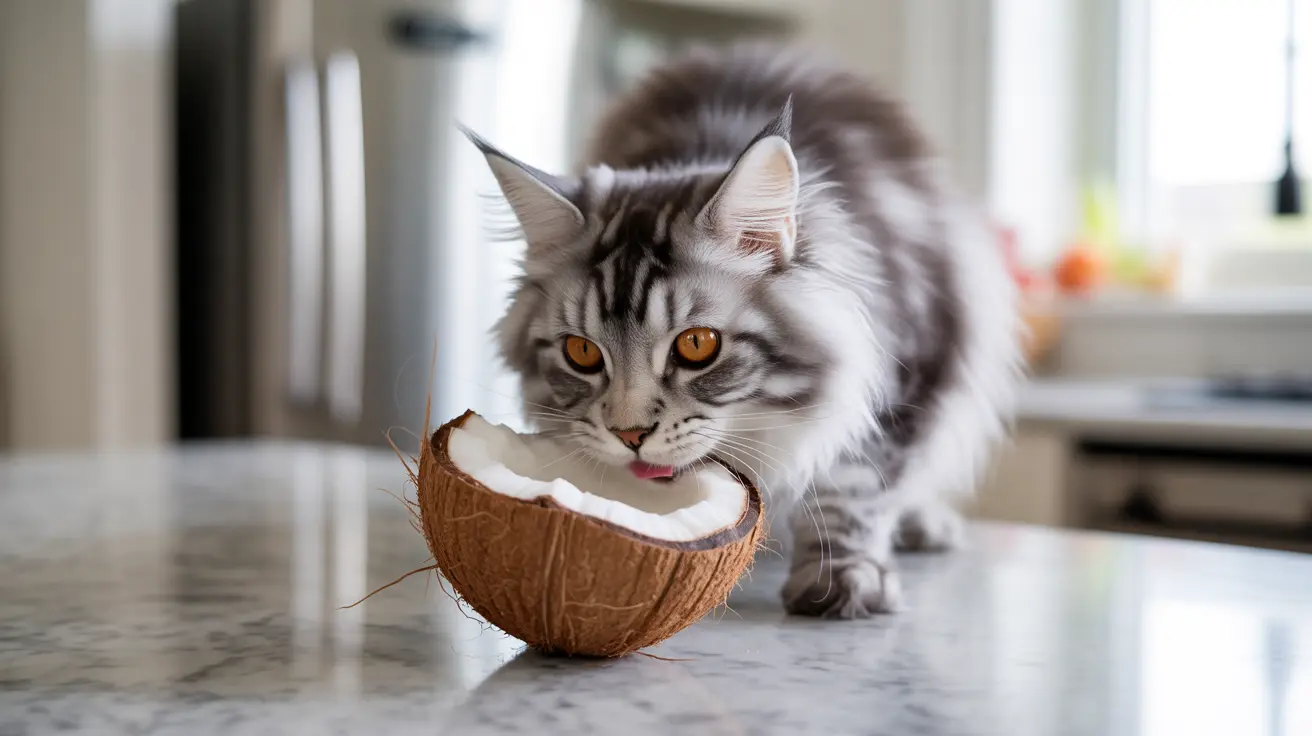If you've ever wondered about sharing tropical treats with your feline friend, you're not alone. Many cat owners ask whether coconut is safe for their pets. This comprehensive guide will explore the safety, benefits, and potential risks of feeding coconut to cats.
While coconut isn't technically toxic to cats, there are important considerations and precautions every pet parent should understand before offering this tropical fruit to their feline companion.
Understanding Coconut Safety for Cats
The good news is that coconut itself is not poisonous to cats. The ASPCA has officially listed coconut and its derivatives as non-toxic to felines. However, this doesn't mean cats should regularly consume coconut products.
Several factors determine whether coconut is safe for your specific cat, including:
- Your cat's overall health condition
- Any existing digestive sensitivities
- The type of coconut product being offered
- The amount given
Potential Benefits of Coconut for Cats
While cats don't necessarily need coconut in their diet, some forms may offer minor benefits:
- Medium-chain triglycerides (MCTs) for energy
- Natural antibacterial properties
- Potential skin and coat health support
- Antioxidant properties
Health Risks and Concerns
Despite being non-toxic, coconut can pose several risks to cats:
Digestive Issues
- Stomach upset
- Vomiting
- Diarrhea
- Pancreatic inflammation
Physical Hazards
- Choking on coconut pieces
- Intestinal blockage from fibrous material
- Dental injuries from hard shells
Safe Ways to Offer Coconut to Cats
If you decide to let your cat try coconut, follow these guidelines:
- Start with tiny amounts
- Use only fresh, unsweetened coconut meat
- Monitor for adverse reactions
- Consult your veterinarian first
- Avoid processed coconut products
Coconut Products to Avoid
Certain coconut-based items should never be given to cats:
- Sweetened coconut flakes
- Coconut desserts
- Processed coconut products with additives
- Coconut shells and husks
- Coconut-flavored human foods
The Role of Coconut Oil in Cat Care
Coconut oil warrants special consideration. While some pet owners use it topically for skin conditions, internal use should be extremely limited and veterinarian-approved. Even then, no more than a drop or two should be given occasionally.
When to Contact Your Veterinarian
Seek immediate veterinary care if your cat shows these symptoms after consuming coconut:
- Severe vomiting or diarrhea
- Signs of allergic reaction
- Unusual lethargy
- Loss of appetite
- Difficulty breathing
Frequently Asked Questions
Is coconut safe for cats to eat, or is it toxic?
No, coconut is not toxic to cats, but it should only be given in very small amounts and with veterinary approval due to potential digestive issues.
Can feeding coconut oil to my cat cause digestive problems or allergies?
Yes, coconut oil can cause digestive upset and diarrhea in cats. Some cats may also experience allergic reactions, though this is rare.
How much coconut or coconut oil can I safely give my cat?
If approved by your vet, only offer tiny amounts of fresh coconut meat occasionally. For coconut oil, limit to 1-2 drops, if any.
Are there any risks of giving my cat coconut water or coconut milk?
Yes, coconut water and milk can cause stomach upset and contain high levels of potassium and sugars that aren't suitable for cats.
Can coconut oil help improve my cat's skin and coat health?
While some pet owners report benefits from topical coconut oil use, scientific evidence is limited. Always consult your veterinarian before using it for skin conditions.
Remember that cats are obligate carnivores who thrive on a proper feline diet. While coconut isn't toxic, it's not a necessary addition to your cat's nutrition plan. When in doubt, stick to veterinarian-approved cat food and treats designed specifically for felines.






